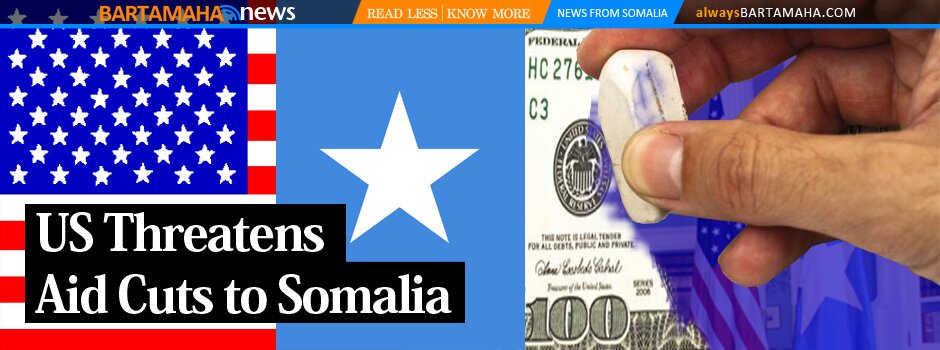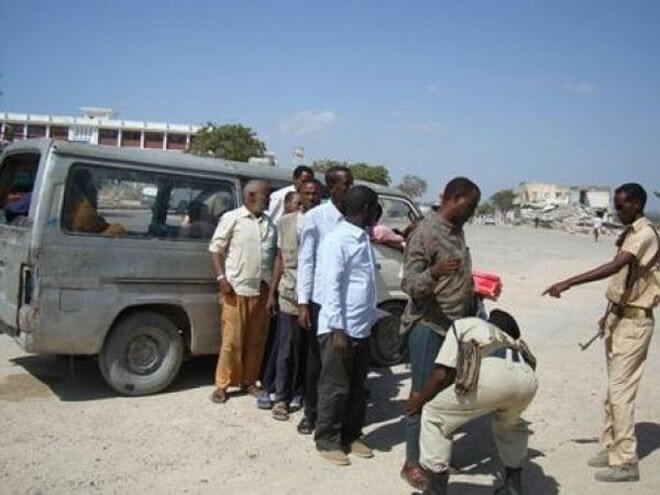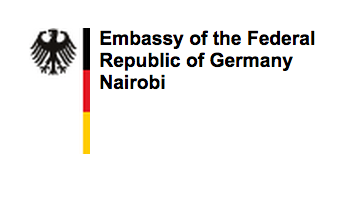Muslim outrage is justified but misplaced
 By Dr Cawo Mohamed Abdi — One can conjure numerous reasons why the Islamic world should be outraged. But the ongoing horrific violence in the streets of many Muslim nations cannot be justified and should generate a Muslim introspection.
By Dr Cawo Mohamed Abdi — One can conjure numerous reasons why the Islamic world should be outraged. But the ongoing horrific violence in the streets of many Muslim nations cannot be justified and should generate a Muslim introspection.
The senseless deaths that followed the Danish cartoon publications depicting the prophet Muhammad in 2006, and the dozens of Muslims and non-Muslims killed over the last two weeks as a result of an amateurish hate-filled video made in the United States, should serve as a turning point for constructive dialogue within the Muslim world.
Are the deaths of these innocent individuals justified in the name of defending Islam? How are the lives of Muslims, or the place of Islam in the globe, impacted by these actions?
How many such chaotic protests and deaths can we expect over the next decade? Century?
Will every time a lone American zealot pastor, an extremist criminal, or a cartoonist testing the limits of free speech produces or republishes images intended to stoke fires lead to senseless Muslim blood-shedding?
Alas! as things stand now, we unfortunately are guaranteed to witness more Muslim deaths. To a lesser extent though just as important, we will witness the victimisation of non-Muslim minorities in the Islamic world, as demonstrated by the savage attacks on Christian worshippers and the burning of churches in Pakistan.
The above reactions have now become self-fulfilling prophecies, always reinforcing the Western conservative and extremist portrayals of Muslims as bloodthirsty fanatics whose lives are worthless, whose search for martyrdom overrides everything else.
This narrative of “cultural clash” is already a powerful discourse towards the Islamic world.
Many analysts of the current turmoil have rightfully pointed out how extremist groups are exploiting the genuine outrage that many Muslims feel when their prophet is insulted; these groups often initiate the violence resulting from these protests. The tragic deaths of the American embassy employees in Libya testify to the veracity of this argument.
But such violent behaviour amongst Muslims unfortunately further strengthens the dictatorial regimes that rule many of the nations where the above unrest is occurring.
We may witness more weapons and more resources from the Western world reinforcing these rulers’ grip of power, with the justification that they are fighting “extremism”. “Islamic extremism” is not only a danger to the West, but also to these dictators.
Contrary to the misplaced anger that these violent demonstrations represent however, recent history is filled with various reasons why Muslims should resent the West.
In addition to a complete political and economic domination, many Muslims living under western-bolstered dictatorial regimes – Pakistan, Afghanistan, Bahrain, Saudi Arabia – rightly view any insult to Islam by a Westerner as further humiliation, pouring acid on an open wound that refuses to heal.
America’s wars in Iraq and Afghanistan and the thousands of innocent civilians killed in these conflicts foster resentment towards the United States around the Muslim world.
But America’s unconditional support for Israel, as illustrated by the recent debacle of the Democratic Party convention, which was pressured to recognise Jerusalem as the capital of Israel, is another area of American government policy with far reaching consequence for millions of Muslims in and outside of Palestine. Instead of chaotic turmoil every time a Western extremist with no political power offends the sensibilities of Muslims, Islamic political and religious leaders should persistently and peacefully contest American policy towards the Middle East and towards the Islamic world in general.
But it is not only America or the West, or Israel that should be the target of Muslim anger.
If the purpose of this rage is to liberate Muslims and Muslim lands from all types of tyranny, whether local or global, indignation at injustice should in fact start at home.
Let me provide a few examples that deserve widespread Muslim anger:
The shelling and the death of thousands of women, children, the elderly and men in Syria should lead to an indignation from Muslims everywhere. The Prophet Muhammad would not have remained silent to such injustice towards other Muslims, even though he was renowned for tolerating and forgiving those who rejected him, insulted and even spat on him. Where is this empathy toward others, Muslims and non-Muslims today?
The complete apathy of the oil-rich Muslim nations of the Gulf towards the millions of Muslims stuck in refugee camps and confronting rape, starvation, and the elements in Afghanistan, Yemen, Somalia, Sudan, Chad and Lebanon should anger Muslims everywhere. Why would the action of a lone fanatic in a land thousands of miles away trigger Muslim outrage, when injustice within Muslim nations abounds and the majority remains silent? Saudi Arabia deports Muslims to lawless Kabul and Mogadishu regularly and did this during the worst humanitarian crisis in these conflict-ridden regions. No Western nation does this as a policy!
If my analysis above is correct then, the Muslim outrage we are witnessing is misplaced; it is an anger that is as senseless as it is counterproductive – killing poor fellow Muslims or innocent non-Muslims while tarnishing the reputation of a whole religion and its over billion adherents.
Anger can be a productive means to bring about lasting change in Muslim nations still under brutal and corrupt dictatorial rule. The mostly peaceful and persistent protests that ousted Mubarak from Egypt and Ben Ali from Tunisia is the one that the Muslim world needs more of, not a futile disorder and destruction.
The Islamic world should continue its revolution to liberate itself from puppet dictatorial regimes as well as extremist Islamists from within. Then and only then can the Muslim world relate to the rest of the community of nations as equal bloc that has a voice at the table.
But such liberation requires a return to the enduring generosity of Islam; it requires an Islam that is critical and anchored, and which does not fall prey to undignified baits.
Dr Cawo Mohamed Abdi is an Assistant Professor of Sociology at the University of Minnesota and a Fulbright Fellow at the University of Pretoria, South Africa.
Source: Aljazeera
Comments
comments
 Calendar
Calendar







































